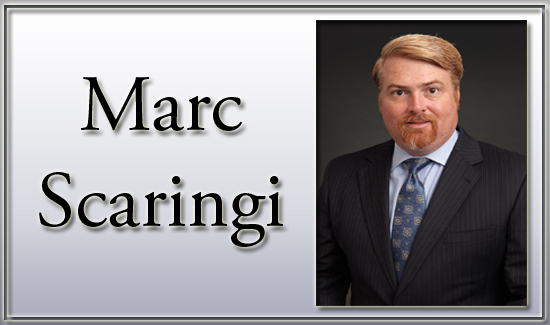Despite Criticisms Whitaker is the Right Man for the Job

Acting U.S. Attorney General Matthew G. Whitaker is enjoying the shortest of honeymoons.
In office for about a week, he now faces a court challenge by the state of Maryland requesting that he be removed from his new position and replaced by Deputy Attorney General Rod Rosenstein, the man Whitaker now supervises.
And, high-ranking Democrats are calling for his recusal from oversight of Special Counsel Robert Mueller’s investigation. House Minority Leader Nancy Pelosi (D-Calif.), Senate Judiciary Committee Ranking Member Dianne Feinstein, D-Calif., and other Democratic members of Congress sent a letter to the Assistant U.S. Attorney General in charge of ethics at the Department of Justice urging him to advise Whitaker to do just that.
The Justice Department stated that Whitaker will consult with senior ethics officials about his “oversight responsibilities and matter[s] that may warrant recusal.”
In their letter Democrats claim Whitaker should not be overseeing the Mueller investigation because he has a “history of hostile statements toward” the investigation, has prejudged the investigation and has served as chairman of Sam Clovis’ 2014 campaign for Iowa state treasurer and stayed in “close contact” with him since then.
But, what about Whitaker’s personal and political relationships? According to DOJ regs, Whitaker may not participate in a criminal investigation if he has a “personal or political” relationship with any “person…substantially involved in the conduct that is being investigated” or if he knows that “person…has a specific and substantial interest that would be directly affected by [its] outcome …”
Former Attorney General Jeff Sessions, who served as a top foreign policy adviser on the Trump campaign, cited these grounds in support of his recusal.
Whitaker, not having served on the Trump campaign, will have to dig deeper in his analysis.
The regulations define a “personal” relationship as “close and substantial” of the kind that would normally “induce partiality.” Whether a “friendship” rises to that level is a determination Whitaker must make based upon his own subjective opinion.
What about a “political relationship?”
That might exist if Whitaker has a “close identification” with Clovis, the former Iowa Treasurer candidate, that arose from Whitaker’s service to him as a principal adviser on his campaign. So, it’s possible Whitaker could have a personal or political relationship with Clovis. But that’s not the end of the analysis. Clovis must have been “substantially involved in the conduct” being investigated or have a “specific and substantial interest that would be directly affected.”
What exactly is the conduct being investigated? Mueller was appointed to investigate “any links and/or coordination between the Russian government and individuals associated with the campaign of President Donald Trump and any matters that arose or may arise directly from the investigation.”
Because the letter appointing Mueller gave such a broad mandate on his authority it’s possible that Clovis could meet the “substantial involvement” or “interest” test.
But even if Whitaker makes each of these determinations that point toward recusal that’s still not enough. Whitaker can supervise the investigation if he determines that notwithstanding his relationship with Clovis and assuming Clovis has a substantial involvement or interest in the investigation, he believes he’ll be able to conduct himself in a fully impartial and professional manner and that his “participation would not create an appearance of a conflict of interest likely to affect the public perception of the integrity of the investigation or prosecution.”
If Whitaker believes he can be fair and impartial he should resist the massive pressure placed upon him by Democrats. It being so obvious there is no collusion, Whitaker may be the best person for the job.
If he has the personal strength to resist the gale force winds calling for his recusal, he may also have the strength to shut down an investigation that a year-and-a-half later, and $17 million in tax dollars, and despite filing over 100 criminal counts against 32 people and three companies, has not produced one shred of evidence of collusion.
PennLive Opinion contributor Marc A. Scaringi, of Camp Hill, is an attorney and radio host. His work appears biweekly.




